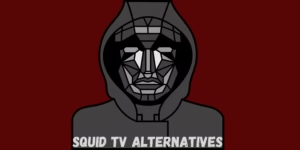Education has always been vital to human progress. The ability to learn and acquire knowledge is a unique characteristic that distinguishes us from other species. However, the methods of learning have evolved over time. In this digital age, it’s not just about pouring over textbooks or memorizing facts. It’s about leveraging technology and innovative strategies to enhance learning experiences. This article aims to provide geek education hacks like CustomAssignmentWriters.com that can help elevate your learning process. Strap in and prepare for a journey into the world of tech-savvy strategies, gamification techniques, programming incorporation, and virtual reality learning experiences.
Contents
Tech-Savvy Strategies: Applying Geek Culture to Boost Academic Performance
In the world of education, geek culture is making waves. The term “geek” traditionally refers to someone who is intensely interested in a particular subject or activity, often related to technology, science fiction, or fantasy. In recent years, this culture has permeated the academic sphere, introducing new and innovative strategies to boost academic performance.
One of these strategies is the use of open-source learning platforms. Websites like Khan Academy, Coursera, and Udemy offer thousands of courses in various fields. These platforms allow students to learn at their own pace, making education more flexible and accessible. The use of these platforms can improve academic performance by providing supplemental resources and allowing students to explore topics beyond their school curriculum.
Another tech-savvy strategy is the use of digital tools and apps for organization and productivity. Applications like Google Calendar, Trello, and Evernote can help students keep track of assignments, manage their time effectively, and improve their productivity. These tools foster a more organized learning environment, reducing stress and enhancing academic performance.
Learning Through Play: Gamification Techniques for Effective Study Habits
Learning doesn’t have to be boring. In fact, it can be fun and engaging with gamification techniques. Gamification involves the application of game-design elements and principles in non-game contexts, like education. It’s a powerful tool that can motivate students, enhance their engagement, and improve their study habits.
One of the most effective gamification techniques is the use of rewards and badges. These items serve as recognition for students’ achievements and progress. They can motivate students to complete tasks, study more effectively, and improve their performance. Websites like Duolingo and Khan Academy effectively use this technique, encouraging students to learn through a series of challenges and rewards.
Another gamification technique is the use of leaderboards and competition. A friendly competition can spark motivation and engagement among students. It encourages them to strive for improvement and excel in their studies. Apps like Quizlet and Kahoot! incorporate this technique, fostering a competitive yet collaborative learning environment.
Code Your Way to Success: Incorporating Programming in Academic Pursuits
In the 21st century, coding has become an essential skill. It’s not just for computer scientists or software developers; it’s for everyone. Incorporating programming in academic pursuits can enhance critical thinking, problem-solving skills, and creativity – attributes critical for success in any field.
One way to incorporate programming is through project-based learning. Students can create websites, applications, or games for their school projects. This approach allows them to apply theoretical knowledge in a practical setting, enhancing their understanding and retention of the concepts.
Coding can also be incorporated through online platforms that offer coding courses. Websites like Codecademy, Udacity, and edX provide interactive programming courses for beginners and experts alike. These platforms make learning programming more accessible and enjoyable, promoting self-paced and personalized learning.
Navigating Virtual Realms: Merging Virtual Reality with Learning Objectives
Virtual reality (VR) is no longer just a tool for entertainment. It’s a powerful educational tool that can transform the way we learn. By merging VR with learning objectives, education can become more immersive, interactive, and engaging.
One way to incorporate VR in education is through virtual field trips. Instead of reading about historical places or scientific phenomena, students can explore them in a virtual environment. This immersive experience enhances learning, making it more memorable and exciting.
VR can also be used for skills training. For instance, medical students can practice surgeries in a virtual environment before performing them in real life. This approach enhances their skills and confidence, reducing errors and improving patient outcomes.
In conclusion, geek culture and technology offer numerous opportunities to elevate learning experiences. By leveraging these resources, students can enhance their academic performance, develop effective study habits, improve their skills, and achieve their learning objectives in fun and engaging ways. Remember, education is a lifelong journey. Keep exploring, keep learning, and keep growing!



